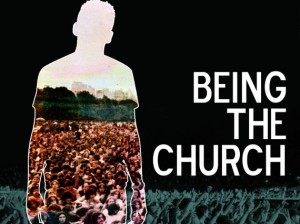As we continue our study of Ephesians, this study considers Ephesians 2:5-7 and the meaning of the word “salvation.” We see that a misunderstanding of the word “salvation” leads to a misunderstanding of the entire chapter of Ephesians 2. But when we properly understand what “salvation” means in context, we can then better understanding the whole of Ephesians 2.

Before we look at that text, however, we answer a question from a reader about something I taught from Matthew 13 and the Parable of the Wheat and the Tares.
Before we get to that, however, I hope you took advantage of my offer to get some free Bitcoin and Dogecoin a few weeks ago. At the time, Bitcoin was at $32,000 and Dogecoin was at $0.19. Today, Bitcoin is at $46,500, up 45%, and Dogecoin is currently at $0.32, up 68%. I am not giving financial advice, but I am glad I bought a little bit of both (You don’t have to buy a whole Bitcoin, but can buy a tiny fraction of one coin like I did).
If you haven’t yet joined my discipleship group, I have a way for you to get about $60 in free cryptocurrency and use some of it to join my Discipleship group. If you are already part of my discipleship group, you can still get the free cryptocurrency. If you follow the steps I lay out, you really don’t have anything to lose. If you had followed these steps about a month ago when I provided them, that $60 in free crypto would now be worth almost $100. And don’t think you’ve missed out. I honestly think we’re just at the very beginning of the cryptocurrency adoption and growth. But do your own due diligence and make choices that are right for you.
Question from a Reader
My question was in the study of the wheat and the tares you say that the wheat are the ideas of God and the tares are the ideas of the evil one if I understand correctly. In Matthew 13:38 it refers to them as people. I’m confused. Thanks for your response.
The reader is referring to a previous study on the Parable of the Wheat and the Tares in Matthew 13:24-30.
This is a question! And good job noting the translation in the NIV.
Part of the problem is the NIV translation is pretty bad on this verse. The Greek word used twice in Matthew 13:38 should not get translated as “people.” It should be “sons” or “children.”
 I went on to argue that the word for “sons” in both “sons of the kingdom” and “sons of wickedness” is better understood as “offspring,” which in the context, would indicate the behavior or results that come from living according to the ideas and teachings of the Kingdom of God vs. the kingdom of darkness.
I went on to argue that the word for “sons” in both “sons of the kingdom” and “sons of wickedness” is better understood as “offspring,” which in the context, would indicate the behavior or results that come from living according to the ideas and teachings of the Kingdom of God vs. the kingdom of darkness.
Here is what I said:
Typically, a “son” is understood to be a child of someone else. But the word “son” can also be used metaphorically. When the word “son” is used in connection to a concept or idea, instead of to a person or family, it refers to the characteristics or inner attributes of someone, rather than to the person themselves. So “sons of this world” are contrasted with “sons of light” in Luke 16:8 (cf. John 12:36; 1 Thess 5:5). A student or disciple of the Pharisees could be called a “son of the Pharisees” (Matt 12:27; Acts 23:6). Scripture can also speak of “sons of the resurrection” (Luke 20:36), “sons of this age” (Luke 16:8; 20:34), “sons of disobedience” (Eph 2:2; 5:6), “sons of the devil” (Acts 13:10) and numerous other similar terms. Such descriptions are not literal (a son of the devil is not literally the biological offspring of the devil), but are instead figurative and symbolic ways of referring to someone’s character and behavior.
If this applies to the word “sons” in this parable, then Jesus is referring to the figurative offspring that comes from the teachings of the kingdom of God versus the kingdom of darkness. Throughout time, the results that come from the teachings of Jesus have always proven to be better than that which comes from any other source. Jesus’ words and teachings can therefore be trusted.
What is Salvation in Ephesians 2:5-7?
In previous studies of Ephesians 2, I have stated that Ephesians 2 is one of the most misunderstood chapters in the Bible. Most people think that the overall message of Ephesians 2 is about how to receive eternal life and go to heaven when you die. And while the first 10 verses of Ephesians 2 can be read this way, the “Application” section of Ephesians 2, found in verses 11-24, show that Paul does not have eternal life and going to heaven in view at all. Paul is concerned with a completely different issue in Ephesians 2.
One of the primary reasons that people misunderstand Ephesians 2 is because they have a faulty definition of the word “salvation.” If Ephesians 2 is one of the most misunderstood chapters in the Bible, the word “salvation” is the most misunderstood word in the Bible.
When most Christians see the word “saved” or “salvation” in the Bible, they think it means “being saved from sin and death so you can receive eternal life and go to heaven when you die.”
You might be surprised to know that this is not how the salvation word family (saved, salvation, save, Savior) is used anywhere in Scripture. A careful study of the various contexts of the words “saved” or “salvation” in the Bible reveals that the word simply means “delivered” or “deliverance.” And you can be delivered from a wide variety of things in Scripture.

In Matthew 8:25, the disciples are in a boat on the Sea of Galilee, and they cry out to Jesus, “Lord, save us!” Are they asking Jesus to forgive their sins so they can receive eternal life and go to heaven when they die? No! There is a great storm on the sea, and they are about to drown and so they ask Jesus to save, or deliver, them from drowning.
This is an easy example, but the rest of the uses of “saved” and “salvation” in Scripture follows a similar pattern. People can be saved from sickness, from enemies, from war, from financial ruin, from premature physical death, from the devastating consequences of sin and temptation, and from a wide variety of other things.
So whenever you see the word “saved” or “salvation” in Scripture, you should substitute in the word “delivered” or “deliverance” and then look in the context to see what kind of deliverance is in view. This will help clear up a lot of confusing Bible passages for you. I will cover many of these passages in my Gospel Dictionary online course for the entry on “salvation” when it gets published.
This is what we will do today when we encounter the word “saved” in Ephesians 2:5-7. We will substitute in the word “delivered” and then consider the context to see what we are delivered from and what this deliverance looks like. When we do this, we will come to understand that Paul is not talking about how to receive eternal life and go to heaven when we die, but is instead talking about a pressing issue that involves the lives of all people on planet earth here and now.
So let’s jump in to Ephesians 2:5.
By Grace You Have Been Saved (Ephesians 2:5)
We are picking up from last time when we looked at Ephesians 2:4 and how God has stepped in to the problem of human violence to do something about it.
Paul continues this idea in the first part of Ephesians 2:5 when says. …because of His great love with which He loved us, even when we were dead in trespasses.
Again, Paul is showing that the activity of God which is described in Ephesians 2:4-10 is not because of how great we humans are, but is rather because of how much God loves us. God stepped in to act on our behalf while we were dead in our sins. While we were unlovely. While we were undesirable by any standard. Yet God’s love for us was so great, that He loved us anyway.

So what did God do? At the end of Ephesians 2:5, Paul says (by grace you have been saved).
Here is the word “saved” that has caused so many problems in this text. So here is what we do. We see the word “saved” and since we know that this word is widely misunderstood in the minds of most Christians, we substitute in the word “delivered.” The word “delivered” is a fine translation for the Greek word, and it helps us better understand the passage, because it doesn’t carry the same theological baggage as the word “saved.”
So Paul is saying “By grace you have been delivered.”
Now we can look into the context to see what we have been delivered from.
And thankfully, since we’ve been studying Ephesians verse-by-verse, we already know what we have been delivered from, because Paul described it in Ephesians 2:1-4. In those verses, Paul describes the great human problem, which is that we are blinded by Satan so that we engage in a never-ending cycle of human violence that leads to death.
Back in our study of Ephesians 2:1, we learned that salvation in Ephesians is not about receiving eternal life so we can go to heaven when you die, but is instead about being rescued and delivered from our addiction to accusation, scapegoating, and violence, so that we are brought into the way of life, love, and liberty that God always wanted and desired for humanity.
So what is “salvation” is Ephesians 2? It is deliverance from our addiction to violence against other human beings. It is deliverance from how we justify our violence against other human beings. It is being shown what the real problem is and being shown how to handle this violence in a different way, a way that follows the heart of God and the example of Jesus.
This deliverance from the cycle of human violence is what Paul goes on to describe in Ephesians 2:5-7. He uses three descriptive terms to show how we have been delivered, or saved, from our blindness and slavery to violence.
These three descriptive terms are that we have been regenerated with Christ, resurrected with Christ, and are now reigning with Christ.
Regenerated with Christ (Ephesians 2:5)
First in Ephesians 2:5. He made us alive together with Christ. We were dead, and he gave us life. God couldn’t just do this by a wave of his hand, no matter how much he loved us, because – as I said earlier – that would violate his justice and his righteousness. So God made us alive together with Christ.

Paul doesn’t go into great detail here on what he means by regeneration, but this is because Paul has already gone into detail in Ephesians 1:13-23. In our study of Ephesians 1:13, we learned that regeneration is being given new life in Jesus Christ. We are brought back to life with Him.
Jesus not only showed us a different way to live life, He also has given brand new life to us so that we can live in it. It is like we were living in a desert, and Jesus not only showed us what life is like in the rich, lush mountains filled with rivers and streams, but also took us to the mountains so that we can actually experience new life living there.
Jesus didn’t just say “Let me show you a new way to live,” He actually gave us new life so that we can live in it.
Resurrected with Christ (Ephesians 2:6a)
Next in Ephesians 2:6, Paul reveals how we were given new life in Christ. We were raised us up together with Christ. We were resurrected with Christ.
Resurrection is different from regeneration. Regeneration is new spiritual life in Christ. Resurrection is new physical life in Christ. We have been spiritually raised with Him, and we will be physically raised. Life in Christ is not just a spiritual reality, but will also be an eternal physical reality when we are raised with Christ and given new, glorious, sinless bodies.
Now, physical resurrection with Christ is still a future event for us, but in regard to how we live in this life, it is a current reality that we can live in light of.

It is sort of like living with an inheritance that you have not yet received. If you know with absolutely certainty that when you turn a certain age, you will receive a million dollars, that is going to affect how you live your life now and the sorts of choices you will make about your finances. You can even start making investments or purchases with the expectation that in the future, you will gain your million dollar inheritance.
Resurrection is sort of like that. When we receive our resurrected bodies, we will be perfect. We will be sinless. We can start living in light of that reality now. We no longer have be enslaved to this present body of sin. We no longer have to live under the crushing debt of sin. We can instead live in light of the way we will be.
The third and final description of our salvation is related to this, and is found in the last part of Ephesians 2:6.
Reigning with Christ (Ephesians 2:6b)
Paul writes that were were made us sit together in the heavenly places in Christ Jesus.
This is a reference to reigning with Christ. And remember, being seated with Christ in heavenly places is a theme that Paul brings up several times in Ephesians. We discussed it previously back in our study of Ephesians 1:3 and our study of Ephesians 1:20-23 and we will see it again later in Ephesians.
One of the key truths to remember is that this statement about sitting with Christ Jesus in heavenly places is not a reference to some future event when we are in heaven with Jesus, but is instead a reference to life here and now on this earth. One of the things Jesus sought to do during His earthly ministry, which is also the task that Jesus assigned to the church, is that we are to bring heaven down to earth. We are to carry out God’s will on earth, just as it is in heaven (Matthew 6:10).
Heavenly places are the places on earth where the Kingdom of God is making inroads to life on this earth so that God’s rule and reign comes upon this earth, just as it is done in heaven.
So when Paul writes that we are seating with Jesus Christ now in heavenly places so that we can rule and reign with Him, he is talking about how we are to lead the world now into the way that Jesus wants the world to live.
And how is that? Not with violence and blame and hate and anger, where we accuse and demonize our enemies so that we can kill them in God’s name. No. Rather, we are to lead the world into the way of Jesus, into a life filled with grace, mercy, and forgiveness, where, like God, we love others even when they are dead in their trespasses and sins and seek to do us harm in return.
We reign with Christ by loving our enemies, just as He loved us while we were still His enemies.
When we live in light of our regeneration, resurrection, and reigning with Christ, it is then that we begin to experience the results of this sort of life, which is what Paul discusses in Ephesians 2:7.
Results: Riches in Christ (Ephesians 2:7)
In view of that, though, how should we act? How should we behave? We have been given new spiritual life and physical life in Christ, and have been seated with Him to rule and reign over this earth. We have infinite resources at our disposal. So how are we to live?
We should not be ashamed of whose children we are. We should be proud of our name and our family. We should not worry about worldly concerns because our Father the King is watching out for us. And if a new life, and being raised with Christ, and getting a royal position are not enough to get you excited to serve God, Ephesians 2:7 tells us the results of living in light of the deliverance Jesus has brought to us.
 Paul writes in Ephesians 2:7… That in the ages to come He might show the exceeding riches of His grace in His kindness toward us in Christ Jesus.
Paul writes in Ephesians 2:7… That in the ages to come He might show the exceeding riches of His grace in His kindness toward us in Christ Jesus.
With these words, Paul shows that the new life we have been given in Jesus Christ is not temporary or limited. It begins now, and continues through all the ages of our life, which includes all the ages of eternity. In all the ages to come, God will continue to pour out upon us the riches of His grace and kindness. He loves us and will always love us, and we are only beginning to see the height and depth of God’s love for us. We will spend all eternity exploring God’s love in greater detail.
So, what is the salvation, or the deliverance, that we have been given in Jesus Christ?
It is that we no longer have to live in the realm of death, where we condemn, accuse, and kill others. Instead, because of what God has done for us in Jesus Christ, we are able to truly live. We have new spiritual life (regeneration), physical life (resurrection), and powerful life (reigning) with Jesus Christ. We have been delivered from our old way of life and brought into a brand new way of life.
A life based on love, grace, mercy, and forgiveness. A life that looks just like Jesus.
Paul is not done talking about this life. He continues in Ephesians 2:8 to show us how we can start living in this new way of life. That is where we will pick up in our next study. In Ephesians 2:8-10 we will see how we can start showing the world a better way to live. How we can fulfill our calling to reveal the life of Jesus to this dying world.



 But this is a bald-faced lie.
But this is a bald-faced lie. I have answered this question previously, here is the link:
I have answered this question previously, here is the link: 
 In Ephesians 1:9, Paul says that for many years, God had a secret, a mystery, which He has just now made known to the world.
In Ephesians 1:9, Paul says that for many years, God had a secret, a mystery, which He has just now made known to the world.

 Have you heard of cryptocurrency? They’re in the news a lot this week, so I decided to talk a a bit about them. I explain what they are, why they’re important and gainin widespread acceptance, and how to get some if you want. Ten years ago, Bitcoin was $1. It hit $48,000 today. Dogecoin is the most entertaining cryptocurrency, which causes many to believe it will be the most successful. It currently sits at $.07, and many believe it will hit $1 this year. Where will it be in ten years?
Have you heard of cryptocurrency? They’re in the news a lot this week, so I decided to talk a a bit about them. I explain what they are, why they’re important and gainin widespread acceptance, and how to get some if you want. Ten years ago, Bitcoin was $1. It hit $48,000 today. Dogecoin is the most entertaining cryptocurrency, which causes many to believe it will be the most successful. It currently sits at $.07, and many believe it will hit $1 this year. Where will it be in ten years? I have written a lot about this before. There’s a whole section on tithing in my book (#AmazonAdLink)
I have written a lot about this before. There’s a whole section on tithing in my book (#AmazonAdLink) 
 The context of these passages provides numerous lines of evidence to show that Jesus is talking about experiencing eternal life in our present life through the rule and reign of God, rather than about how to receive eternal life and go to heaven when we die.
The context of these passages provides numerous lines of evidence to show that Jesus is talking about experiencing eternal life in our present life through the rule and reign of God, rather than about how to receive eternal life and go to heaven when we die. All of this is about entering into the kingdom of God (Mark 10:23-25; Luke 18:24-25), which is shorthand for entering into the experience of the rule and reign of God in our lives here and now on this earth.
All of this is about entering into the kingdom of God (Mark 10:23-25; Luke 18:24-25), which is shorthand for entering into the experience of the rule and reign of God in our lives here and now on this earth. “Well done!” Jesus would say. “Only one thing is left. Resign as pastor. Stop selling books. Quit preaching. Throw out all your gospel tracts and Christian clothes. Stop tithing to the church. Put your Bible on a shelf for a while, and go have a beer at the local pub. Then come follow Me and we’ll see what’s next.” But the young pastor would go away, thinking that Jesus was a false teacher, for the young man had it all figured out.
“Well done!” Jesus would say. “Only one thing is left. Resign as pastor. Stop selling books. Quit preaching. Throw out all your gospel tracts and Christian clothes. Stop tithing to the church. Put your Bible on a shelf for a while, and go have a beer at the local pub. Then come follow Me and we’ll see what’s next.” But the young pastor would go away, thinking that Jesus was a false teacher, for the young man had it all figured out.

 Some might add a fourth element on the top of this list which is implied by Paul but not stated explicitly, namely that we must also believe we are sinners. The logic is that since Paul writes that Christ died for our sins, people must first believe that they are sinful before they can believe that Christ died for their sins. Fine. Let us give the benefit of the doubt, and allow this implied truth of the gospel as well.
Some might add a fourth element on the top of this list which is implied by Paul but not stated explicitly, namely that we must also believe we are sinners. The logic is that since Paul writes that Christ died for our sins, people must first believe that they are sinful before they can believe that Christ died for their sins. Fine. Let us give the benefit of the doubt, and allow this implied truth of the gospel as well. This arbitrary practice of augmenting Paul’s definition of the gospel in 1 Corinthians 15 proves that Paul is not defining the gospel after all. He is including some of the essential truths of the gospel, but by no means is he including them all.
This arbitrary practice of augmenting Paul’s definition of the gospel in 1 Corinthians 15 proves that Paul is not defining the gospel after all. He is including some of the essential truths of the gospel, but by no means is he including them all.





